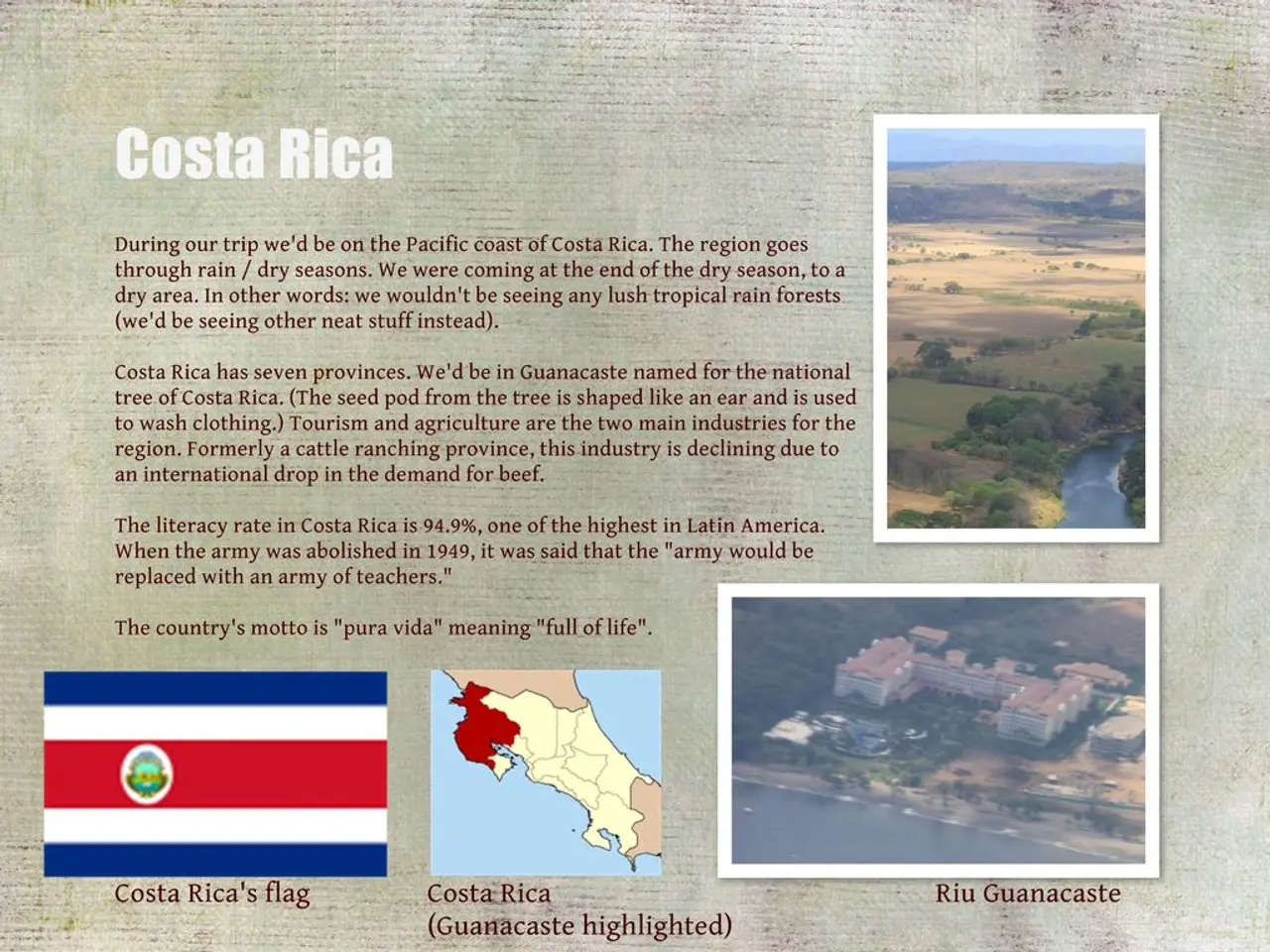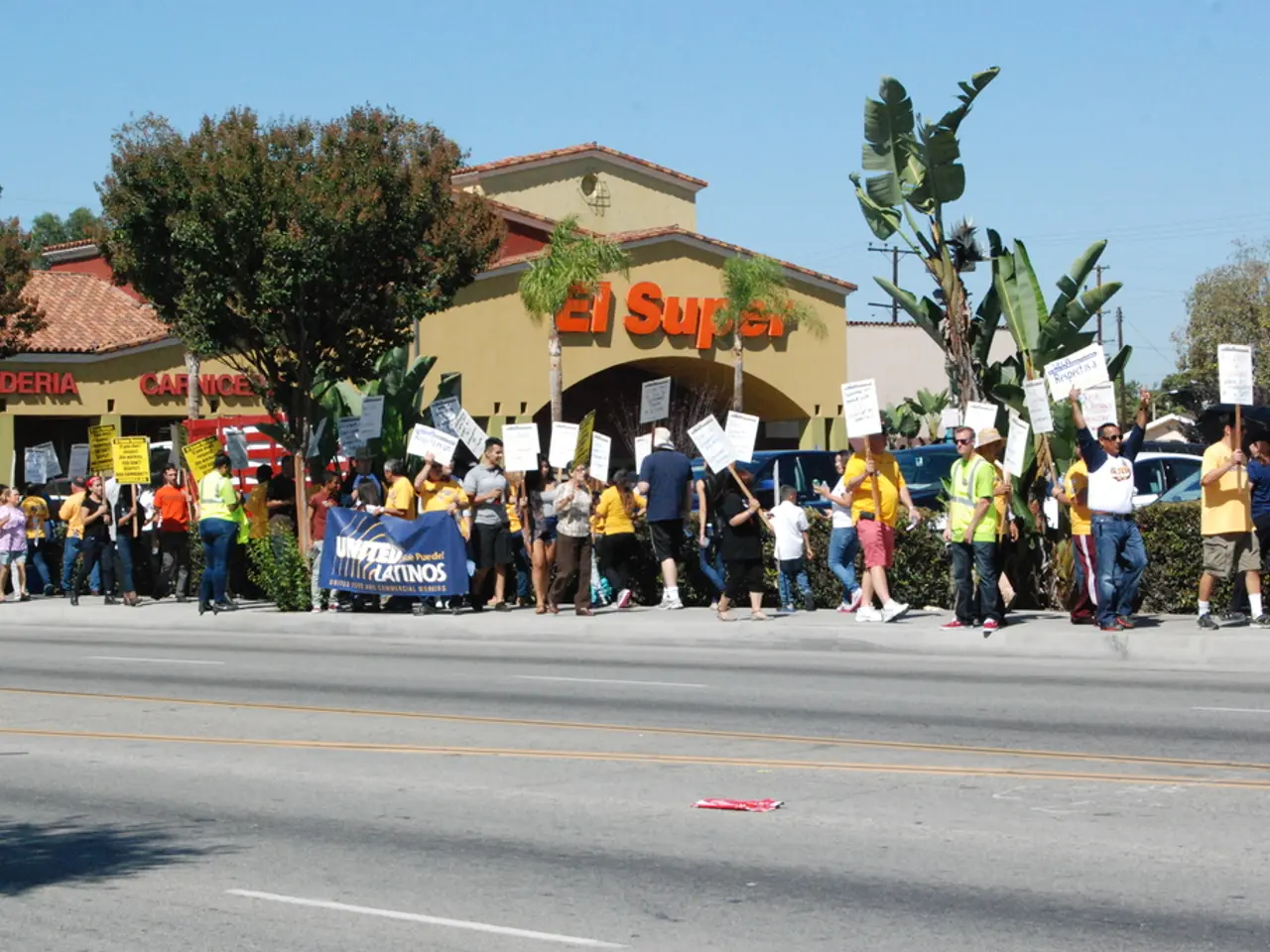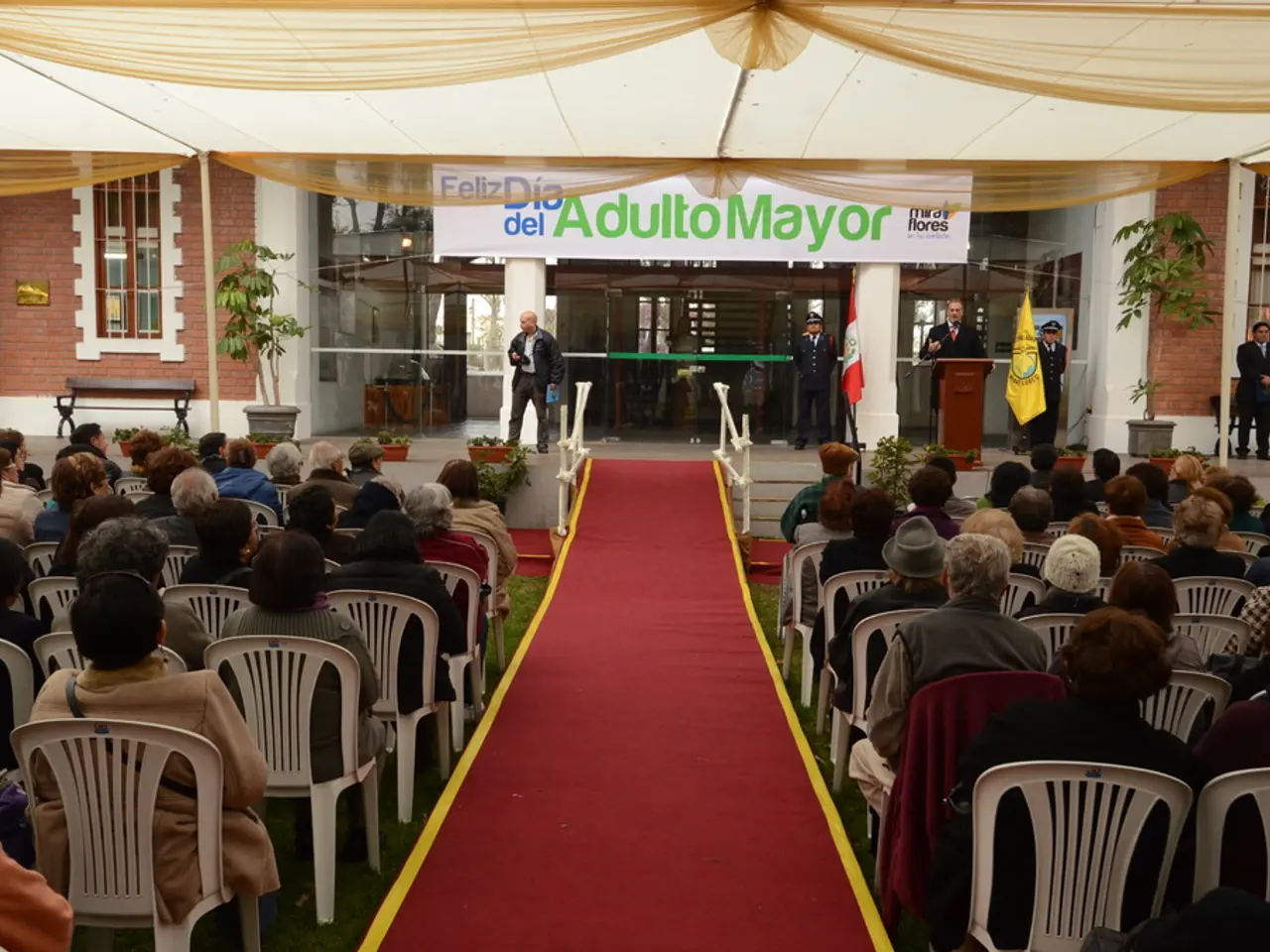Costa Rica's Unbroken Odyssey, Steadfast in Maintaining Army-less Status for 75 Years
Costa Rica's Peaceful Path: 75 Years Since the Abolition of the Army
Last Friday, Costa Rica celebrated the 75th anniversary of the abolition of its army at Abolition Square. The event marked a significant milestone in the country's history, symbolising its commitment to peace, social development, and democracy.
This momentous decision was made after a 44-day civil war in 1948, led by then-President José Figueres Ferrer. The war, which claimed the lives of 2,000 people, deeply affected the nation. In response, Figueres Ferrer initiated a revolt to become the head of state, and he enshrined the permanent outlawing of the military in the 1949 constitution (Article 12).
The abolition was a deliberate move to break the pattern of military coups and dictatorships common in Central America, focusing instead on peaceful democratic governance. Since then, Costa Rica has not experienced a coup, a testament to the success of this approach.
Education: A Priority Sector
With the military budget no longer a drain on resources, Costa Rica was able to invest heavily in education. This investment has been key in advancing literacy, educational access, and social mobility, setting Costa Rica apart in the region.
In 2022, Costa Rica invested 6.3% of its gross domestic product in public education, more than the United States and Germany, according to the World Bank. As a result, 75% of the Costa Rican workforce had received advanced education, a significant increase from the 72% in the United States.
A Safer Society
Costa Rica's lack of a military and emphasis on civil policing have contributed to a relatively safer society compared to other Central American countries. While exact statistics are not available, the country avoids military violence and large-scale internal conflicts common in neighbouring states, which generally translates to lower violent crime rates.
However, in 2023, Costa Rica saw an increase in crime, recording 26% more homicides than in 2022, according to the Costa Rican judicial power. The Costa Rican national plan aims to reduce the number of homicides by tackling drug trafficking and emphasising the need for authorities to closely monitor border and maritime areas.
A Happy Nation
Costa Rica's peaceful identity, absence of military threats, and focus on quality of life are major contributors to its high happiness index. The country is often ranked as one of the happiest countries worldwide, a reputation linked to its stable democracy, strong social programs, and environmental commitment.
In conclusion, Costa Rica's abolition of its army was a deliberate post-civil war policy to emphasise peace and social development, which has had a lasting positive effect on its education system, contributed to lower violent conflict indicators, and bolstered its status as a happy, stable democracy globally. The country continues to strive for further progress, with the Costa Rican national plan aiming to reduce crime rates and improve the quality of life for its citizens.
[1] Costa Rica: A Peaceful Revolution. (n.d.). Retrieved from https://www.un.org/sustainabledevelopment/blog/2019/12/costa-rica-a-peaceful-revolution/ [2] Costa Rica: A Country Without an Army. (n.d.). Retrieved from https://www.nationalgeographic.org/encyclopedia/costa-rica-country-without-army/ [3] The World Happiness Report 2020. (2020). Retrieved from https://worldhappiness.report/ed/2020/ [4] Costa Rica: A Peaceful and Happy Country. (n.d.). Retrieved from https://www.oecd.org/costarica/49124599.pdf [5] Costa Rica: A Green and Peaceful Paradise. (n.d.). Retrieved from https://www.un.org/sustainabledevelopment/blog/2019/03/costa-rica-a-green-and-peaceful-paradise/
- Costa Rica's decisive step to abolish its army in 1949, part of a broader policy and legislation focus, was a strategic move to divert resources from war-and-conflicts towards priorities like education, thereby elevating it as a regional leader in literacy and social mobility.
- In the realm of crime-and-justice, Costa Rica's lack of a military and emphasis on civil policing have generally resulted in a safer society compared to its Central American neighbors, although it did experience an unusual spike in homicides in 2023.
- Consequently, general-news sources frequently highlight Costa Rica's peaceful nature, democratic stability, and commitment to the environment, which have collectively contributed to the country consistently ranking high in crime-and-justice indices and the happiness of its citizens, despite occasional accidents or temporary setbacks.






